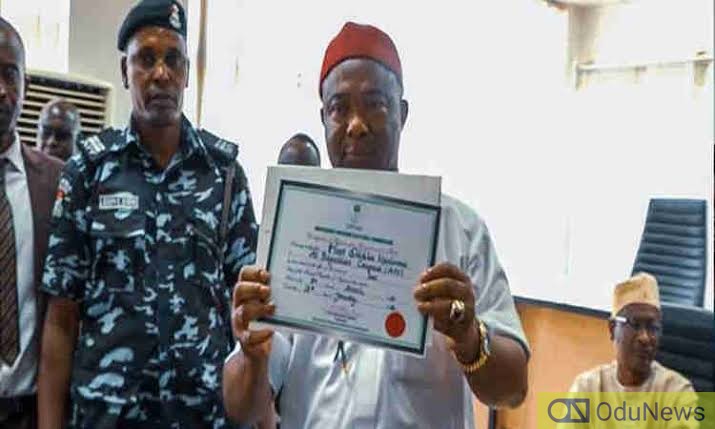
Former Imo state Governor, Emeka Ihedioha, who was replaced with Hope Uzodinma (APC) by the Supreme Court will today approach the Supreme Court to seek a review of the judgement ousting him.
An associate of Ihedioha, Manzo Abubakar, who led a coalition of Civil Society Organisations (CSOs) to address a news conference yesterday, queried the court’s decision.
Abubakar, executive director of Abuja Discussion Group (ADG), said Ihedioha’s legal team would be at the Supreme Court to seek a review of the judgment.
He said Ihedioha’s decision to return to the court was part of efforts to deepen the country’s democracy and explore democratic means of ensuring justice.
“The judgment will go down in infamy and may make Nigeria a laughing stock in the comity of nations, if not reviewed. Section 176 (2b) of the Constitution is clear that to be declared governor, a candidate must have, not only the majority of total votes cast, but also 1/4 of the votes in 2/3 of the local governments.

“It is axiomatic that nowhere in the petition or evidence did the petitioner (Uzodinma) claim to have met the constitutional requirement of spread to be declared winner.”
Abubakar lamented that the court denied Imo people the opportunity to choose their leader, saying judges were mortals and prone to mistakes.
He said: “We sympathise with their Lordships as mortals who are not infallible. To err is human. It would be practically impossible for any human to have read briefs and record of proceedings exceeding 5,000 pages in the matter within two hours after hearing, when it also had the pressure of time to deliver judgment in the remaining pending governorship appeals. No doubt, this accounted for the mistakes made by the Supreme Court.

“The Supreme Court is supreme and can creatively reinvent its rules to do justice. It is necessary to do so now more than ever to save Nigeria’s democracy, constitutionalism and retrieve the judicial and justice system from its present opprobrium.”
He noted that the court should review and reverse the anomaly in the judgment, even if it means applying a judicial doctrine of necessity.

